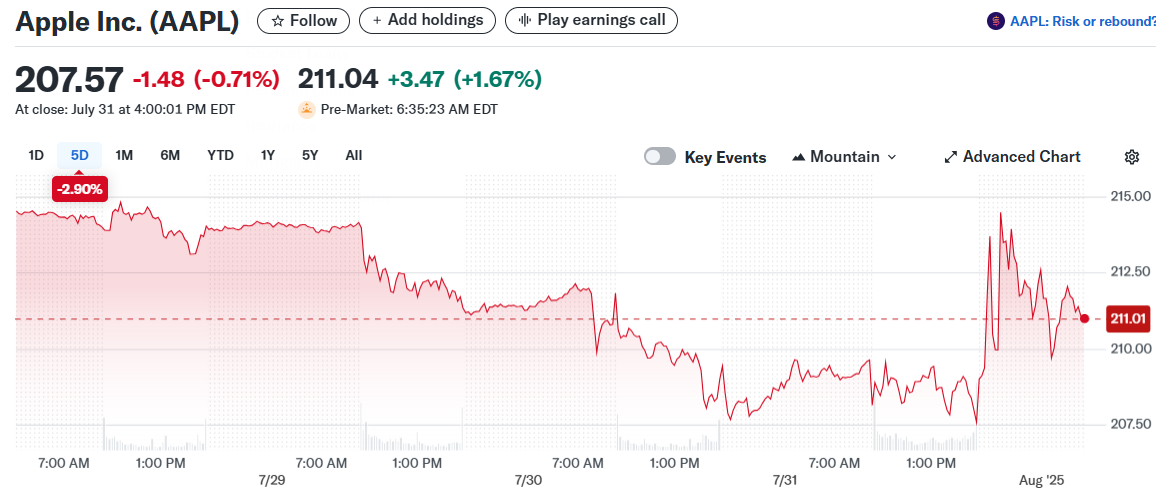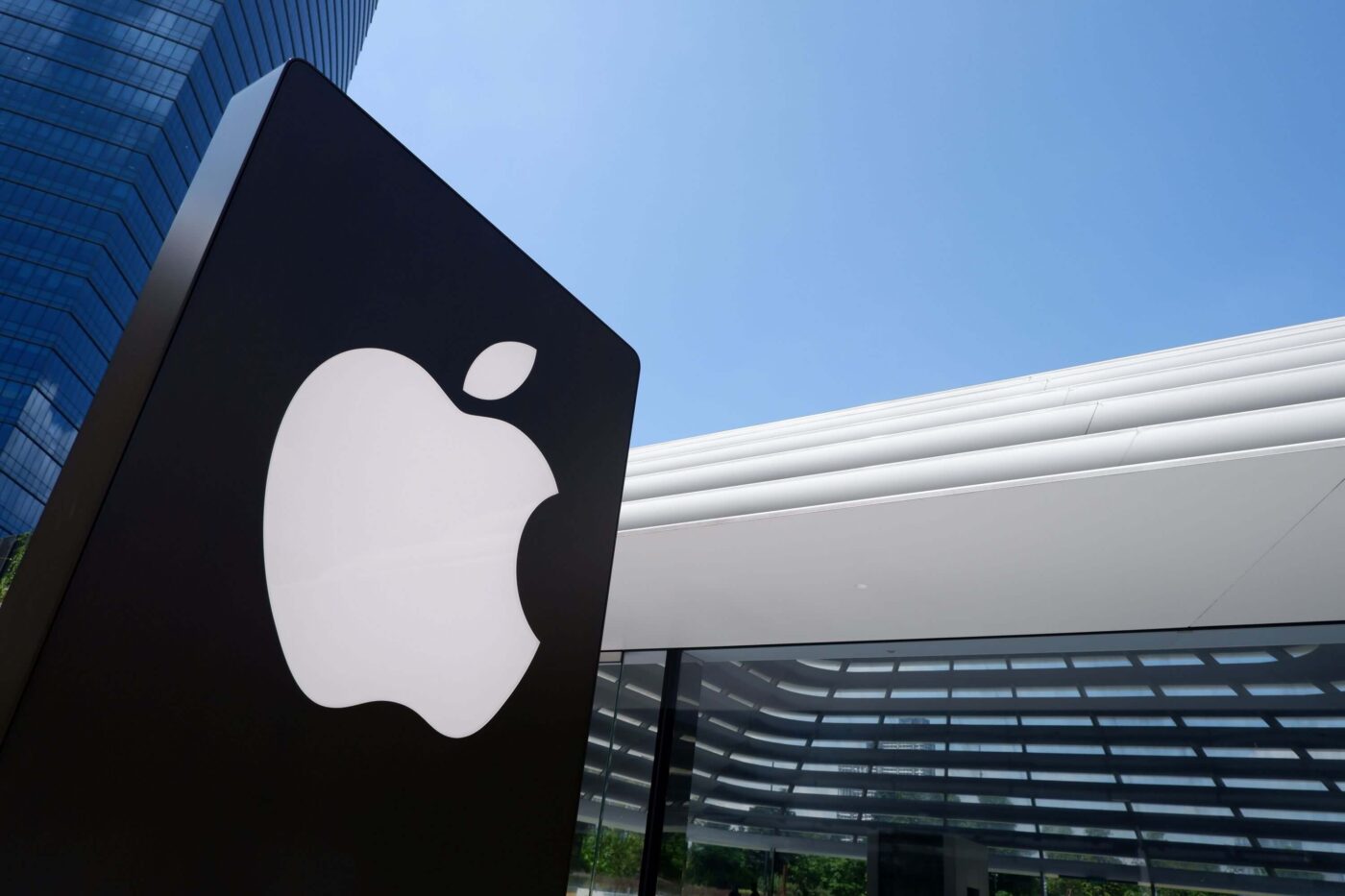TLDR
- Apple beat Q3 expectations with $1.57 EPS on $94 billion revenue, driven by strong iPhone sales of $44 billion
- CEO Tim Cook announced readiness to make larger acquisitions and increase data center spending to catch up in AI
- Company faces potential $20 billion revenue loss if Google’s antitrust case ends Safari search deal
- Apple stock rose 1.8% in premarket trading after earnings beat
- iPhone revenue exceeded Wall Street estimates by over $4 billion while Services hit $27.4 billion
Apple delivered a strong third quarter that beat Wall Street expectations on both revenue and earnings. The company reported earnings per share of $1.57 on revenue of $94 billion, surpassing analyst estimates of $1.43 EPS on $89.22 billion revenue.

iPhone sales drove much of the outperformance, generating $44 billion in revenue versus expectations of $39.8 billion. This represented a substantial beat of over $4 billion for Apple’s flagship product category.
Services revenue also exceeded expectations at $27.4 billion compared to Wall Street’s forecast of $26.8 billion. Mac revenue hit $8 billion, while iPad and Wearables segments declined year-over-year to $6.5 billion and $7.4 billion respectively.
The earnings beat sent Apple stock up 1.8% in premarket trading Friday. CEO Tim Cook celebrated the results, highlighting double-digit growth in iPhone, Mac, and Services across all geographic segments.
China sales came in at $15.3 billion, slightly above the expected $15.1 billion. This performance helped alleviate some concerns about Apple’s business in the region.
AI Investment Strategy Shift
Perhaps more intriguing than the quarterly results was Cook’s departure from Apple’s traditionally conservative spending approach. The CEO signaled openness to larger acquisitions and increased data center investments to compete in artificial intelligence.
“We’re very open to M&A that accelerates our roadmap. We are not stuck on a certain size company,” Cook said during the earnings call. This marks a shift for Apple, which has historically preferred smaller, specialized acquisitions.
Apple has already acquired seven smaller companies this year. The company’s largest deal remains its $3 billion purchase of Beats Electronics in 2014, followed by a $1 billion Intel modem chip business acquisition.
The iPhone maker faces growing pressure to catch up with Microsoft and Google in AI. Both rivals have attracted hundreds of millions of users to their AI-powered chatbots and assistants through massive spending programs.
Google plans to spend $85 billion over the next year, while Microsoft is on track to spend over $100 billion, mostly on data centers. Apple has traditionally relied on outside data center providers and tried to develop AI technology in-house.
Data Center Spending Plans
Chief Financial Officer Kevan Parekh confirmed Apple would increase data center spending, though he avoided specific targets. “It’s not going to be exponential growth, but it is going to grow substantially,” Parekh said.
Apple currently spends only a few billion dollars per year on data centers compared to its tech rivals. The company uses its own chip designs to handle AI requests with privacy controls compatible with its devices.
The AI push comes as Apple faces several business challenges. President Trump has threatened a 25% tariff on iPhones unless Apple produces them in the US.
More pressing is the potential impact of Google’s antitrust case. Apple receives approximately $20 billion annually from Google to maintain it as the default search engine in Safari and Siri.
A federal judge is expected to rule on remedies in Google’s antitrust case in August. If Google must abandon exclusivity deals, it would create a $20 billion hole in Apple’s Services business.
Apple has discussed reshaping Safari with AI-powered search functions. Bloomberg reported that Apple executives have discussed acquiring AI startup Perplexity, though Reuters has not independently confirmed these discussions.
Analysts continue criticizing Apple’s slow AI rollout. Wedbush’s Dan Ives has called for the company to purchase Perplexity AI, warning of a “historic strategic black eye” if Apple doesn’t adapt quickly.
Bank of America’s Mohan echoed concerns about Apple’s pace in AI innovation. He noted that while Apple typically takes time with new technologies, the rapid AI advancement could leave it behind user expectations.
Apple has delayed improvements to its Siri virtual assistant until next year, highlighting the challenges in its AI development timeline.






